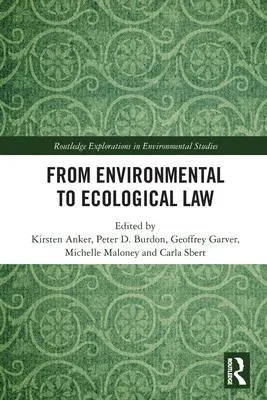From Environmental to Ecological LawPaperback, 1 August 2022

Qty
1
Turbo
Ships in 2 - 3 days
Only 3 left
Free Delivery
Cash on Delivery
15 Days
Free Returns
Secure Checkout

Part of Series
Routledge Explorations in Environmental Studies
Print Length
268 pages
Language
English
Publisher
Routledge
Date Published
1 Aug 2022
ISBN-10
0367689685
ISBN-13
9780367689681
Description
Product Details
Book Format:
Paperback
Country of Origin:
US
Date Published:
1 August 2022
Dimensions:
23.39 x
15.6 x
1.52 cm
Genre:
Ecology
ISBN-10:
0367689685
ISBN-13:
9780367689681
Language:
English
Location:
Oxford
Pages:
268
Publisher:
Weight:
403.7 gm